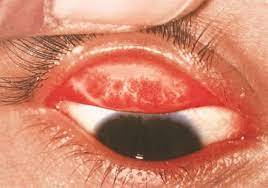How to Prevent Conjunctivitis
Introduction:
Conjunctivitis, commonly known as pink eye, is a highly contagious condition that affects the conjunctiva, the thin, transparent layer covering the white part of the eye and the inner surface of the eyelids. It can be caused by viruses, bacteria, allergens, or irritants, leading to symptoms such as redness, itching, tearing, and discharge. While conjunctivitis is typically not a serious condition and often resolves on its own, it can cause discomfort and inconvenience. Moreover, preventing its spread is crucial to avoid outbreaks and protect the health of individuals. In this comprehensive guide, we will explore various strategies and practices to prevent conjunctivitis effectively.
Understanding the Causes:
Before delving into prevention strategies, it's essential to understand the different causes of conjunctivitis:
1. Viral Conjunctivitis: Caused by viruses such as adenovirus, viral conjunctivitis is highly contagious and can spread through direct contact with an infected person or contaminated surfaces.
2. Bacterial Conjunctivitis: This type of conjunctivitis is caused by bacteria such as Staphylococcus aureus or Streptococcus pneumoniae. It can spread through contact with discharge from an infected person's eyes or sharing items like towels or eye makeup.
3. Allergic Conjunctivitis: Triggered by allergens such as pollen, dust mites, or pet dander, allergic conjunctivitis is not contagious but can cause significant discomfort and itching.
4. Irritant Conjunctivitis: Exposure to irritants like smoke, pollution, chlorine in swimming pools, or harsh chemicals can irritate the eyes, leading to conjunctivitis-like symptoms.
Now that we have an understanding of the causes, let's explore effective preventive measures for each type of conjunctivitis:
Preventing Viral Conjunctivitis:
1. Practice Good Hygiene:
- Wash your hands frequently with soap and water, especially after touching your eyes or face, using the bathroom, or being in public places.
- Avoid rubbing your eyes, as this can spread the virus to your hands and surroundings.
2. Avoid Close Contact:
- Minimize close contact with individuals who have symptoms of viral conjunctivitis, such as red, watery eyes.
- Refrain from sharing personal items like towels, pillows, or eye makeup, as they can harbor the virus.
3. Disinfect Surfaces:
- Regularly clean and disinfect frequently touched surfaces, such as doorknobs, countertops, and electronic devices, to reduce the spread of the virus.
4. Follow Proper Eye Care:
- Avoid wearing contact lenses if you have viral conjunctivitis, as they can exacerbate symptoms and prolong recovery.
- Use disposable tissues or wipes to gently clean discharge from your eyes, and discard them immediately to prevent further contamination.
Preventing Bacterial Conjunctivitis:
1. Maintain Good Hygiene Practices:
- Similar to viral conjunctivitis, practicing good hand hygiene is crucial in preventing the spread of bacterial conjunctivitis.
- Encourage proper handwashing among children and teach them to avoid touching their eyes unnecessarily.
2. Avoid Sharing Personal Items:
- Individuals with bacterial conjunctivitis should refrain from sharing items like towels, pillowcases, and eye makeup to prevent transmission to others.
3. Prompt Treatment:
- Seek medical attention promptly if you suspect bacterial conjunctivitis, as timely treatment with antibiotics can shorten the duration of symptoms and reduce the risk of spreading the infection.
4. Practice Eye Care Hygiene:
- Cleanse your eyelids and lashes with a mild, non-irritating cleanser to remove any crust or discharge, following the guidance of your healthcare provider.
Preventing Allergic Conjunctivitis:
1. Identify and Avoid Triggers:
- Determine the allergens that trigger your allergic conjunctivitis, such as pollen, dust, or pet dander, and take steps to minimize exposure.
2. Use Allergy-Proofing Measures:
- Keep windows closed during high pollen seasons and use air purifiers with HEPA filters to reduce indoor allergens.
- Wash bedding regularly in hot water to remove dust mites, and use hypoallergenic pillow and mattress covers.
3. Wear Protective Eyewear:
- When outdoors, wear wraparound sunglasses to shield your eyes from pollen and other airborne allergens.
4. Consult an Allergist:
- If over-the-counter allergy medications are not providing adequate relief, consult an allergist for personalized treatment options such as prescription medications or allergy shots.
Preventing Irritant Conjunctivitis:
1. Protect Your Eyes:
- Wear goggles or protective eyewear when swimming in chlorinated pools or engaging in activities that expose your eyes to irritants such as smoke or chemicals.
2. Rinse Eyes Thoroughly:
- If your eyes come into contact with irritants, immediately rinse them with clean water to flush out any foreign particles and reduce irritation.
3. Use Eye Drops:
- Lubricating eye drops can help soothe irritated eyes and provide relief from symptoms of irritant conjunctivitis. Choose preservative-free drops recommended by your eye care professional.
4. Avoid Harsh Chemicals:
- Use mild, non-irritating household cleaning products and cosmetics to minimize the risk of eye irritation.
Conclusion:
Conjunctivitis, though often considered a minor ailment, can cause significant discomfort and inconvenience if not prevented or managed effectively. By understanding the different types of conjunctivitis and implementing preventive measures tailored to each cause, individuals can minimize their risk of developing the condition and prevent its spread to others. Practicing good hygiene, avoiding close contact with infected individuals, identifying and avoiding triggers for allergic conjunctivitis, and protecting the eyes from irritants are key strategies for preventing conjunctivitis and maintaining ocular health. Additionally, seeking prompt medical attention and adhering to prescribed treatments can help alleviate symptoms and prevent complications associated with conjunctivitis. By taking proactive steps to prevent conjunctivitis, individuals can safeguard their eye health and enjoy clearer, more comfortable vision.




No comments yet
Be the first to share your thoughts!